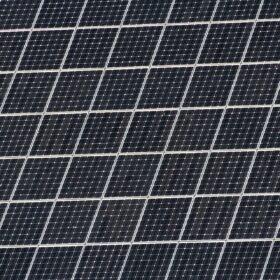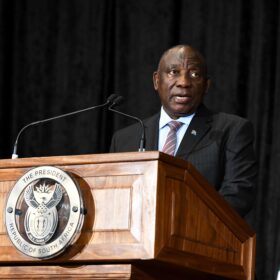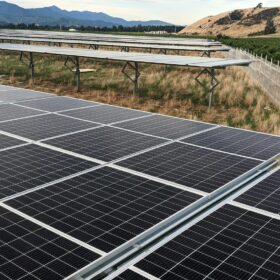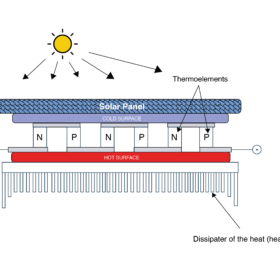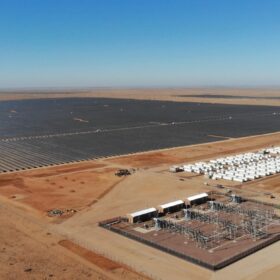Engie, Pele Green building 75 MW of solar in South Africa
Engie says it has begun construction on a 75 MW solar plant in South Africa’s Free State province. The project is one of two installations it is building in partnership with Pele Green Energy.
Ramaphosa reveals 22,500 MW renewables pipeline in South Africa
South African President Cyril Ramaphosa, in his first speech since forming a coalition government in May, said the nation is experiencing a “renewable energy revolution,” with upcoming projects expected to attract around ZAR 400 billion ($21.9 million) in private investment.
South Africa commissions largest wheeling project to date
South Africa has commissioned its largest wheeling project, with SOLA Group supplying more than 200 MW of solar power to Tronox Mineral Sands via the Eskom network.
South Africa imposes 10% import tariff on solar panels
The International Trade Administration Commission of South Africa (ITAC) has imposed a 10% import tariff on solar panels to protect local manufacturers, attract investment, and deepen the value chain. The South African Photovoltaic Industry Association has questioned the lack of formal industry engagement, calling the timing “not ideal.”
EU set to dig into raw materials supply
The European Union has drawn up new regulations to boost the domestic mining of raw materials and support production of renewable energy products and materials at home. Will it be enough to incentivize investment, or will Europe trail other major economies, such as the United States and China?
Amea Power secures financing for 120 MW of solar in South Africa
Amea Power says it has obtained financing for a 120 MW solar plant near Klerksdorp, South Africa. The funds include $100 million in debt from Standard Bank South Africa and $8 million in equity from Industrial Development Corp.
Novel attempt to design solar cell based on chalcogenide perovskite delivers 13.86% efficiency
Scientists in South Africa have proposed a new chalcogenide perovskite solar cell design based on a compound known as barium zirconium sulfide. They tested different hole transport materials in the new device and found that a polymer known as P3HT achieved the best performance.
Scientists claim PV systems combined with thermoelectric cooling may achieve 6-year payback time
Scientists in South Africa have modeled a photovoltaic system connected to a thermoelectric cooling device and have found it may produce around 9.2% more electricity than conventional PV system without cooling. The research team claims the proposed system guarantees a minimum cost saving of 10.56%.
Barriers to residential PV in South Africa
A scoping review examining the barriers to residential PV installations in South Africa says that no studies have considered how income effects the the likelihood of households adopting rooftop solar. The researchers claim this is “a glaring omission given debates on just transitions.”
Large-scale solar, battery storage hybrid starts operations in South Africa
Norwegian PV developer Scatec ASA has switched on a hybrid solar and battery storage facility in the Northern Cape province of South Africa.
